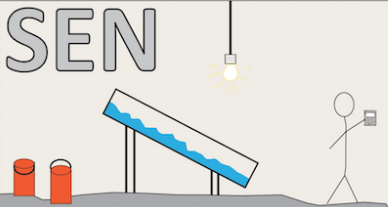Table of Contents
The starting and stopping of pumps produces transient flows in pumping systems, that may damage or destroy both the pumps and the connected piping system. Careful operation of the pump is necesary to minimize these effects.
1 Setup
The setup assumes:
- a water reservoir,
- a non-submersible pump
- a suction line connecting the pump to the water reservoir,
- a discharge line split into:
- A bypass line back to the reservoir, controlled by a valve, and
- A discharge line into the constant-head head tank, controlled by a valve.
2 Startup procedure
- Ensure that the bypass valve is fully open. This cannot be emphasized enough. The bypass line is the main protection for the system, so care must be taken to always ensure that it is not blocked and is always fully open.
- Ensure that the discharge valve is fully closed.
- Turn on the pump's power supply.
- As the pump reaches its rated speed, gradually open the discharge valve.
- If there is no discharge valve and the pump has a rotational speed governor, then gradually increase the rotational speed of the pump motors until the required rotational speed is achieved.
3 Shutdown procedure
The shutdown procedure is the reverse of the startup procedure:
- Gradually close the discharge valve.
- If there is no discharge valve and the pump has a rotational speed governor, then gradually decrease the rotational speed of the pump motors until the pump is no longer rotating.
- Turn off the pump's power supply.
4 On the meaning of gradually
Generally speaking, the normal operation of pumps and valves should be as gradual as possible. However, Without a full analysis of the transient behavior of your particular system, there is no way of fully determining how slowly the valves in your system need to be operated to minimize the effects of hydraulic transients. Despite of this, a reasonable minimum rule-of-thumb is to open or close one second per inch of pipe diameter. More conservative approaches would minimize risks even more.
